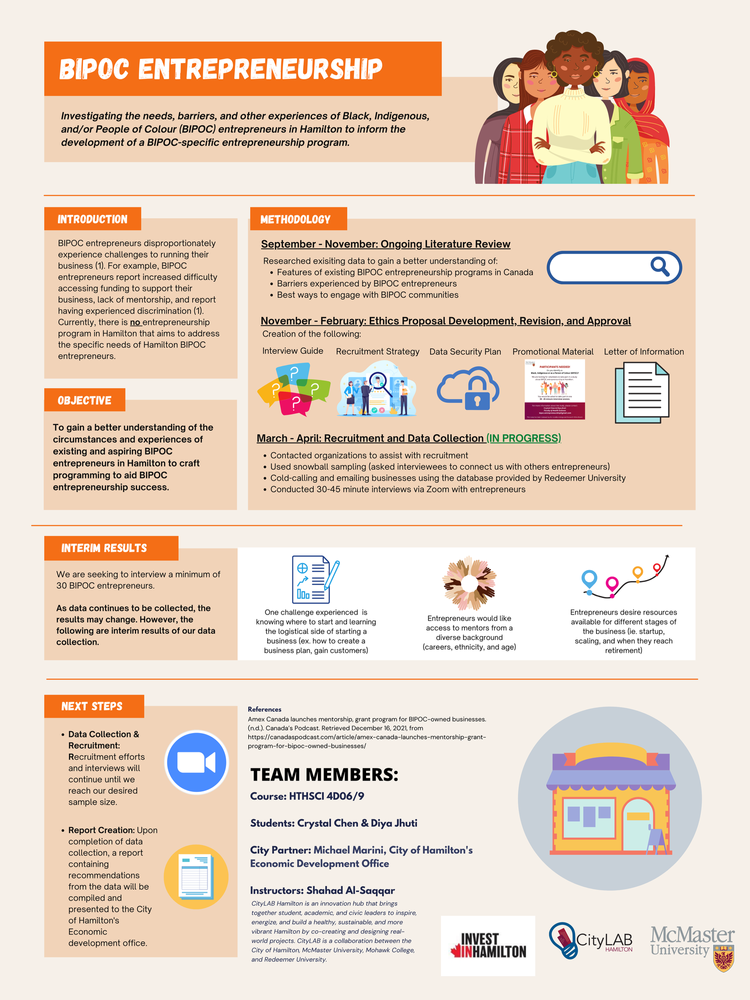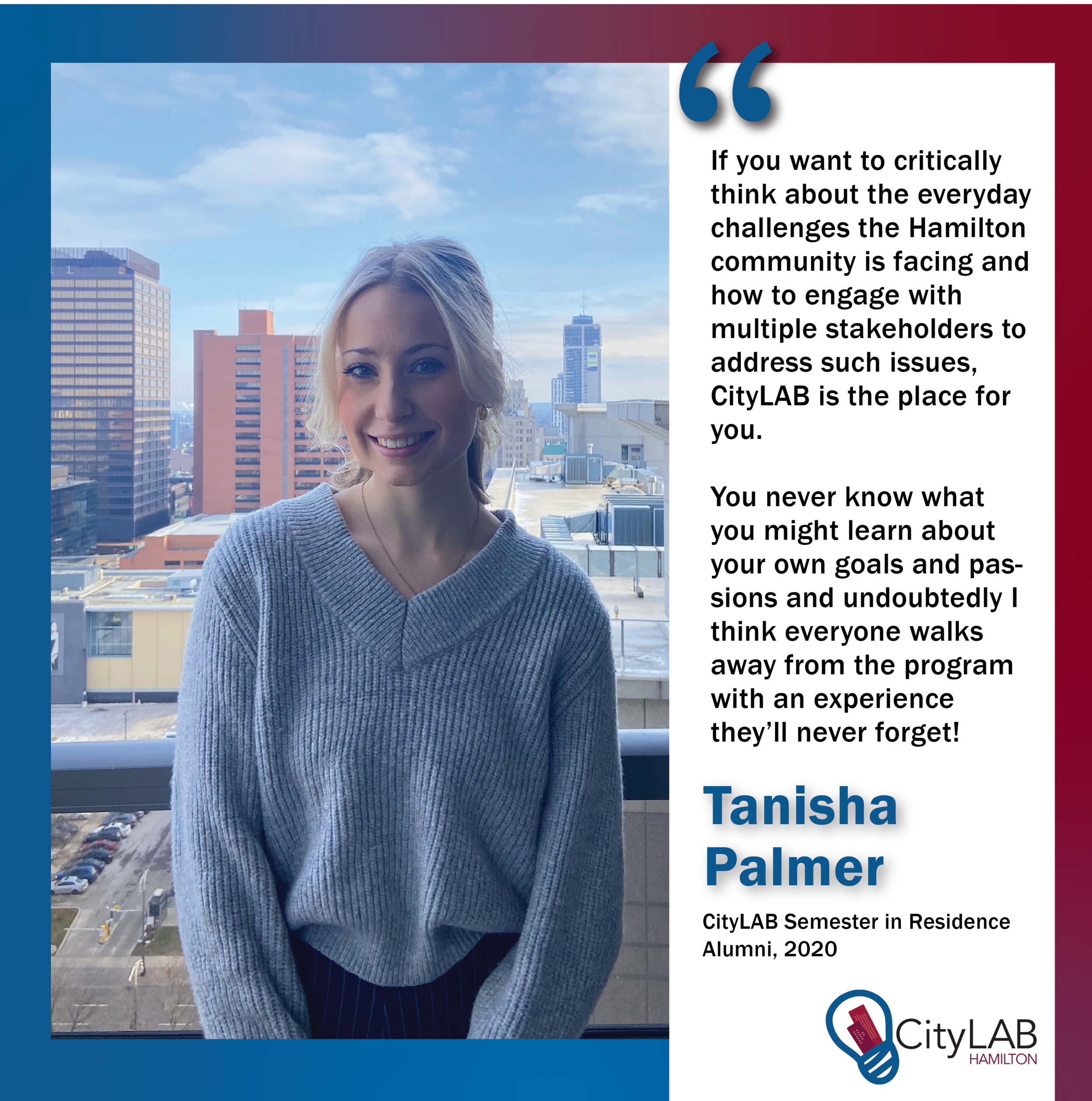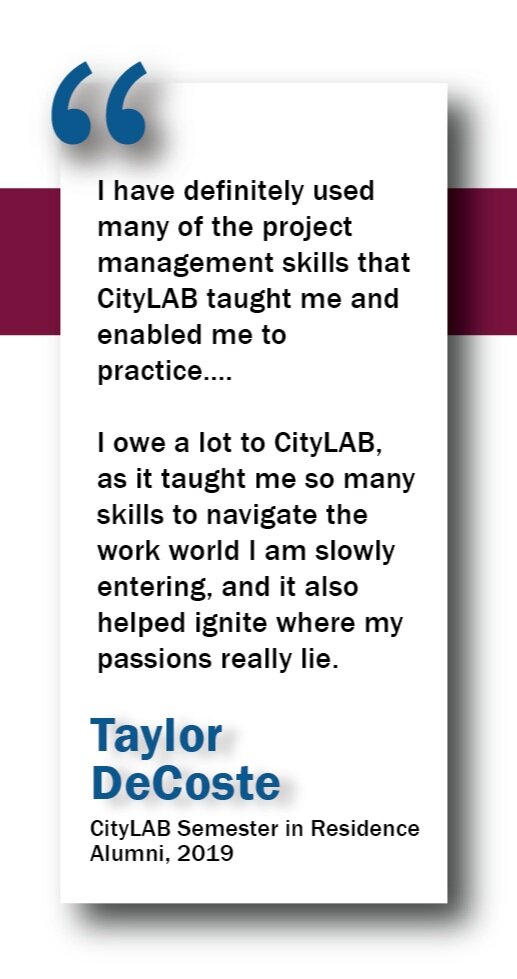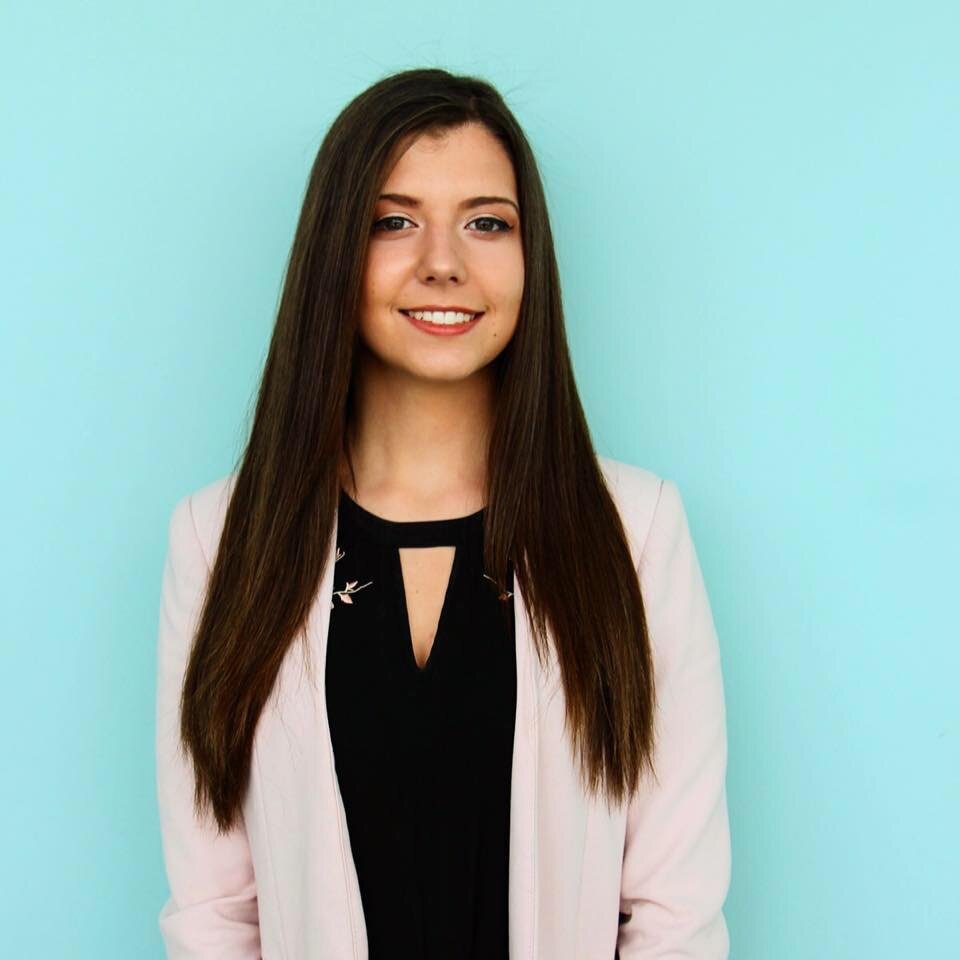Hear from Kristin Huigenbos, Hamilton Business Center, on the impacts the CityLAB project report, BIPOC Entrepreneurship, has made in identifying synergies with mentors, community partners and programming locally and provincially.
Let's begin by hearing a little about your role in the city and how your work impacts Hamiltonians.
My name is Kristin Huigenbos. I work with the Hamilton Business Center team on the first floor of City Hall. We're an extension of economic development, in partnership with the Ministry of Economic Development, Job Creation and Trade. We work with Ministry and private sector partners to foster and support business and economic growth across Hamilton and are part of a 54-office network in Ontario. In recent years, we have navigated the challenges of the pandemic with our small business owners, focusing on their needs, their growth, their opportunity, and how we can support that journey and be part of it with them.
Tell us a bit about reflections you have on your experience working with CityLAB?
It was an amazing experience working with the CityLAB partners, students, educators and everybody involved. It was an opportunity to engage and learn from others from a different lens through different research mechanisms and connections within our community that allowed us to expand our programming and the opportunities to support and foster economic growth across Hamilton.
What were the findings in this report?
This project was done over the course of a full school year with collaboration from a Redeemer Core Capstone class and a full year McMaster Health Sciences Thesis. The Redeemer group identified barriers, researched existing programs and needs, and developed best practices on the creation of a BIPOC (Black, Indigenous and People of Colour) entrepreneurship program. The McMaster group built on this research by exploring the barriers experienced by and needs of BIPOC entrepreneurs through interviews and surveys to inform the development of a BIPOC-specific entrepreneurship program. This process included an action agreement, background research, question development and ethics proposal, finalizing questions & ethics, data collection (interviews) and analyzing and summarizing findings.
The report gives recommendations related to six prominent themes, highlighted in the executive summary. These include: “Acquiring Social Capital; Addressing the Psychological Side of Entrepreneurship; A Focus on Diversity, Representation, and Discrimination; Increasing Resource Accessibility; Education in Business Fundamental Skills; and Improving Access to Funding.”
Learn more: BIPOC Entrepreneurship Redeemer Fall 2021 Project and McMaster Winter 2022 Project
How are the findings from this project informing the City's work?
We're invested in and striving to learn more about how we can continue bridging relationships and building connections to increase the number of entrepreneurs in the city representing the BIPOC community. The CityLAB report - and the work completed by the teams on this - validated and continued to shape the direction we headed. At the heart of the project was a desire to listen to the real voices of Hamiltonians, their experiences, their lens, and ultimately provided helpful feedback for how we can be helpful and supportive of that entrepreneurial journey in so many ways, working with all members of our community. I believe this really helped us pivot and adopt some of our strategies. As we develop more in-person and virtual experiences, we are integrating the findings into our programming mandate for this year and in the years to come.
Which partnerships or synergies that have formed from these findings are you the most excited about?
This project has allowed us to connect, hear and learn from new mentors within the community. We have also been introduced to entrepreneurs who were previously unaware of the resources that the City of Hamilton has to support them. Every single step of the way has been so impactful and integrated within overall success, not for us, but for the community. I think that's what's important, is that this was research in the community, by the community and for the community. We can continue to deliver services for those community members as a result.
How have you seen this work so far being shared and celebrated? Both in Hamilton and the network outside of Hamilton.
Here in Hamilton, we are very thankful that we have this great work and we're executing on the report. Immediately within our programs, both in our Summer Company and our Starter Company, we changed our mentoring style. We looked at it from a lens of everything that we heard. We have engaged with new mentors, trainers, coaches and facilitators to bring diversity to our team. We've reached out to new partner networks to share information about application intake. I think we've seen an immediate impact from those actions. Our Starter Company Plus, for example, is a program for entrepreneurs in any stage of business provided they're starting full-time, right across Hamilton. In previous years, we've seen 60-70-80 applications. In this last intake, we saw 127 applications for 40 selections. I think that's a testament to the strength of the partnerships, collaboration and overall impact of this report.
We are connecting well beyond the boundaries of typical connections that we would have made in the past. We're observing that impact here locally and we're sharing that with our partners at the Ministry level as well. Sitting on the small business, Central Ontario Board, we're sharing what has been learned such as the demand for different mentorship capacities, mentors, training lenses and educational opportunities in terms of how we deliver programming and services across our community. So, it is also having an Ontario-wide impact.
Do you have any projections of where this work might go?
It's going places, so we're not turning back now. We see the impacts. I look forward to expanding on it. We're seeing success with our entrepreneurs and we are hearing that enthusiasm, and hope to take it a step further. I think we must continue to evolve the dialogue and support at a local level, but also with our partners across Ontario. We will continue the conversation of how this can help in other communities.
Do you have anything else you want to add?
Yeah, we're just super thankful to have this opportunity. I want to say how truly thankful we are for everybody engaged in this process. From working with the CityLAB Team, the partners, and the community, to the interview participants who felt that they could provide this feedback. The impact is very evident, very early on. I'm excited about where this is going and for the long-term impacts of where this can go for our community. And we're seeing success daily. I think that's the important part of CityLAB projects, it is not just something that was done as research or part of an educational institution. This is impactful work that is changing the landscape of entrepreneurship across our ecosystem in Hamilton and across Ontario. This is very important work, and I'm very thankful for that.


















